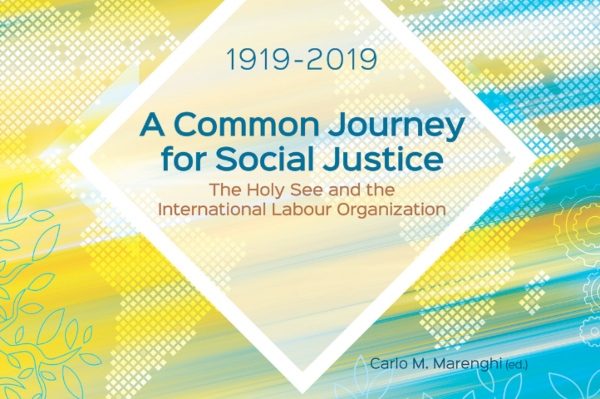A Common Journey for Social Justice (16 July 2020, Global)

A Common Journey for Social Justice: 1919-2019 The Holy See and the International Labour Organization
Descrizione
Labour is “the essential key to the whole social question and is the condition not only for economic development but also for the cultural and moral development of persons, the family, society and the entire human race.” While this perspective has been at the heart of Catholic teaching over the centuries, it underwent further development in the last decades of the 19th century. The Catholic Church played a role in raising awareness on the social transformation of economics, and thus, of human lives. With the signing of the Treaty of Versailles, the International Labour Organization was created. Given these areas of mutual interest, the roads of the Holy See and the ILO began to cross. Albert Thomas, first Director General of the International Labour Office, recognized the Encyclical Rerum Novarum as the source of “a great movement” that led Christians to focus their efforts and commitments on institutional reforms. In 1924, Thomas decided to meet Pope Pius XI in order to propose a more formal collaboration between the ILO and the Holy See. This mutual and close relationship was recognized by the official visits to the ILO made by Pope Paul VI in 1969 and Pope John Paul II in 1982. It has always been rooted in the priority that the Holy See and the ILO have in common: upholding human dignity, solidarity and social justice.
Biografia
Carlo M. Marenghi, Ph.D. (Avellino, Italy, 1984) is a Lecturer at Webster University in Geneva on International Law and on the Principles of Negotiations. He works as the legal advisor at the Permanent Mission of the Holy See to the United Nations and other International Organizations in Geneva. Dr. Marenghi completed his doctorate in International and Comparative Law at the Pontifical Lateran University (Vatican City), with honors Summa cum laude. He has written extensively and published on health, trade, intellectual property, labour and human rights, especially from the perspective of the social doctrine of the Catholic Church.
This article was published by Lateran University Press:
https://www.e-lup.com/index.php?main_page=product_info&cPath=1&products_id=834

